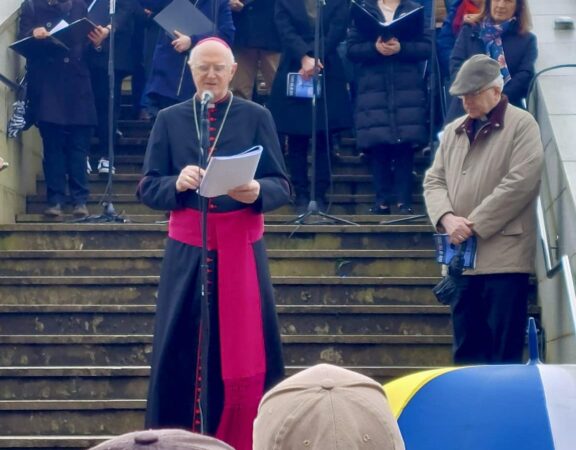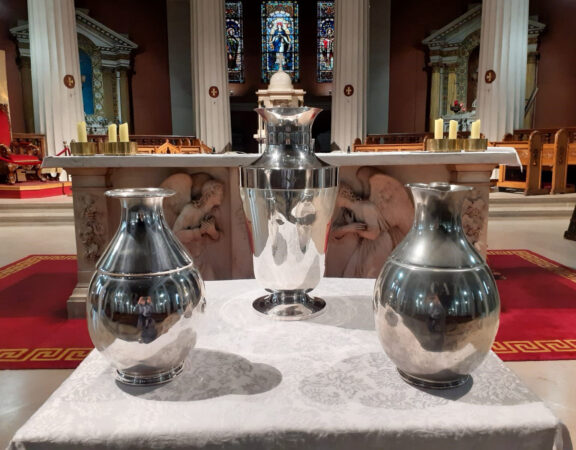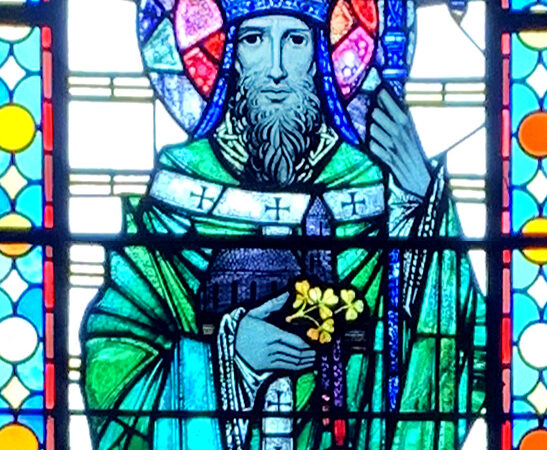
Homily Notes of
Most Rev. Diarmuid Martin
Archbishop of Dublin, Primate of Ireland
—————-
Blackrock College 15th September 2009
We celebrate 150 years of the life of Blackrock College. It is not easy to imagine what the world was like a century and a half ago. Few of us can imagine what the Dublin of one hundred and fifty years ago was like when Blackrock College began its history.
My own meagre personal knowledge of history and of the facts of history has been greatly aided in recent years with the arrival of Google which enables me to impress people with information regarding national and world events in a manner in which I was unable to impress my teachers when I studied history in school.
From Google I learned that in 1859 the Irish Times began publication, that Darwin’s The Evolution of the Species was published and that Big Ben was inaugurated in the Palace of Westminster in London.
Here in Ireland, 1859 was only 15 years after the Great Famine and one can only imagine the trauma which still dominated the country after such a dramatic event which brought with it so much death and mass emigration. Catholic Emancipation had occurred in 1829, thirty years earlier, and 1859 was a time in which the first generation of post-Emancipation Catholics was beginning to take its place in public and academic life.
It was a time in which a remarkable resurgence of Catholic life was underway in Ireland. My predecessor Cardinal Cullen began to attract religious orders from abroad – including the first Spiritans – to come to Dublin and bring with them a wide range of charisms which had not been able to emerge within Irish Catholicism during the difficult period before Emancipation.
Cardinal Cullen and his predecessor Archbishop Daniel Murray, you might say, changed the map of Dublin.
Look at the 1850’s alone: In 1852 the Mater Hospital was opened in Dublin. 1856 Mount Argus welcomed the Passionist community and the Oblate Fathers came to Inchicore. Blackrock College and Terenure College began their histories at the close of the decade. University Church on Saint Stephen’s Green was opened as an essential dimension of the vision of a University of Cardinal Newman. The Daughters of Charity opened their first house in Dublin in North William Street and the Jesuits came to Milltown Park. Within a period of just ten years many of what are today the landmarks of Catholic Dublin – physically and also in what they signify – were built.
I might add that such renewal spread beyond the boundaries of Ireland. Only last month I attended the 150th anniversary of the Archdiocese of Brisbane in Australia, where the first bishop was a priest of the Archdiocese of Dublin, a pioneer of Catholic education at the time.
The map of Catholic Dublin was being changed. But what was happening was not an exercise in real estate. All these institutions and buildings were about bettering the lives of people. A special effort was made to improve the opportunities for the education of Catholic children and young people, from the elementary school right up to University. The French College was originally looked on as an emerging major resource for the Newman’s Catholic University.
The history of the College has been well documented over the years. I will not attempt to retrace its steps. From its foundation, however, the College took on as one of its characteristics pioneering work in catholic education. Carrying on pioneering work is never just a once off matter. Blackrock showed this by its ability to change constantly and to adapt to the needs of changing times, while maintaining its own unique history and ethos. It offered a first class Catholic education which prepared young men for the professions; it contributed through a Civil Service Training Department to the formation of the public administration of an emerging Irish State. It excelled in academics, in sport and in public commitment. It was a model of educational initiative and creativity at a time when conformity dominated many aspects of Irish society.
It is remarkable to note just how pioneering Archbishop McQuaid was during his time as President of the College and as Director of the Castle, especially in encouraging responsibility and freedom and initiative among the senior pupils in a manner which was way ahead of the times.
We celebrate a Mass of the Holy Spirit on the occasion of this Jubilee. This is a school has been marked by a Spiritan ethos, since those first French members of the Congregation of the Holy Spirit came to Ireland one hundred and fifty years ago. The priests of the Spiritan Congregation continued to develop such an ethos of education for many years and today – another example of adaptability – the lay teaching staff of Blackrock College proudly continue to preserve and deepen that ethos which they inherited.
In the Gospel reading we have heard, Jesus promised his disciples that he
would send the Holy Spirit to “teach you everything and remind you of all that I have said to you”. Jesus’ manner of teaching was surprising. He never imposed faith. On many occasions when Jesus’ power was shown in a special way, he told his disciples or those whom he had cured not to tell others. Jesus did not work “telly-miracles” to impress people and lead them to a faith of enchantment or mere fascination.
Jesus knew that even those disciples who had accompanied him for years had not fully grasped what he had taught them and that only with the coming of the Holy Spirit would they come to a deeper knowledge of what his message and identity was. Faith is nurtured by the power of understanding which the spirit brings and which helps us to understand who Jesus is and what our life is really about.
Blackrock College was opened to provide education for Catholics at a time of religious renewal. The challenge today is different. This College is called now to provide Catholic education in a world in which there is a crisis of Catholic culture and identity. Its task is to form young people for a lived and an authentic faith. Catholic education is not just about imparting a bulk of knowledge; it is not about the vague ethos of a mission statement. Catholic Education is about preparing people for life. It is about the bond between faith and life, between faith and culture.
Catholic education is about formation in the knowledge of the Word of God which emerges in a characteristic way of life. That characteristic is, as today’s Gospel reminds us, is the path of love. Being a loving person is the currency with which we measure the commitment of our faith: “Those who do not love me do not keep my words”.
At a time in which we can so often drift into a vision of the Christian faith as a mere moral code or just a complex network of teachings, Catholic education needs to present in a challenging and radically renewing way the fact that God is love. God is not a distant judge but one who reaches us to each one of us to help us save our lives, which means to realise to the fullest degree the life that each one has received and to do so beginning already today. Catholic education is about a radically new understanding of who God is and of how that affects our own ability to live in today’s world;
In his most recent Encyclical, Caritas in veritate, Pope Benedict attempts in a challenging way to look at what it means to live as a witness to the God of love in the practical realities of our lives. He stresses that the only way to make real the dream of a better, more caring and more just world is through the formation of people who are caring, loving, truthful and just people. The task of changing the world requires more than structural or technical reforms. The world will only change in a truly sustainable way when hearts are changed and where the newness of these changed hearts invades and permeates structures.
Christian love is about gratuitousness, a giving not just of things and ideas but of ourselves, without any of the price tags or packaged portions typical of consumer society. Christian charity is the counterbalance to a consumerist and utilitarian way of life. It draws inspiration from an understanding of a God who is love and who shares his life with us
Is there a place for such an idea of
sharing in today’s competitive, market and profit-driven economy? What have charity and gratuitousness to say to the realities and mechanisms of the economic and political life of the years to come? Does an education which stresses the love of God really produce a different sort of citizen and person?
Pope Benedict’s Encyclical recognises the irreplaceable role of the market but notes that “without an internal form of solidarity and mutual trust the market cannot fulfil its proper economic function”. The economy serves the common good but economic growth on its own will never respond to all the needs of life. Our world needs both economic growth and solidarity. Economic growth and solidarity are not two totally parallel tracks which never meet.
Catholic education is about leading young people towards an encounter with God, as a God who reaches out to each one of us in a loving and supportive relationship, and who thus enables and encourages us at the same time to be fully ourselves, not through self seeking but through self-giving.
The word Catholic in the term catholic education is therefore not just a decorative addition. Catholic education has a unique contribution towards education and towards the betterment of society. If a school is Catholic only in name it will not bring the contribution which is its only justification.
May God bless this school in its future; may the Spirit inspire its teachers and its pupils to be authentic seekers of God’s word and authentic witnesses to his love in a world which will be as different to the world of today as our world is different from that of 1859, year in which Blackrock College began its great history.









